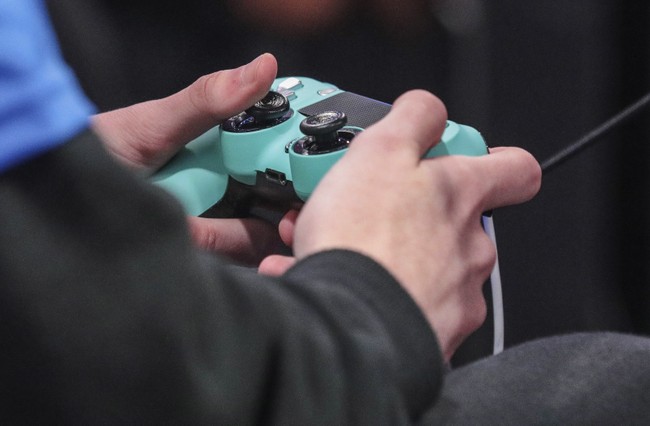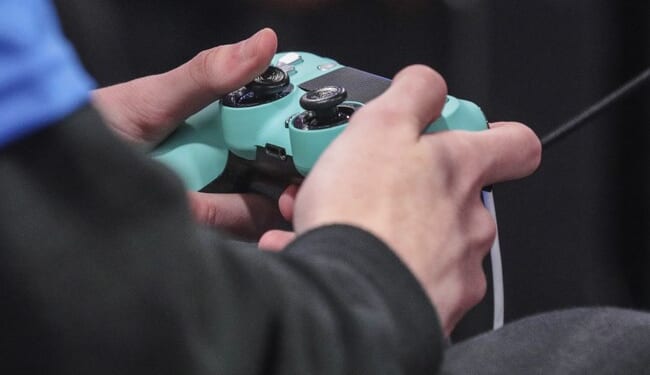
Everything DEI touches withers and diminishes. You can see this proven time and again, and it’s because the nature of DEI places identity and messaging over merit and skill, causing products to degrade in quality. This happens to pretty much every industry, including entertainment’s largest industry: video games.
According to The Hill, major game studios are facing a crisis as a reported 60 percent of developers want to create a union after mass layoffs:
The industry as a whole has been unstable and unsettling to many in recent days. From studio closures to big mergers and acquisitions like Electronic Arts’ $55 billion buyout by a consortium of investors, including Saudi Arabia‘s Public Investment Fund, to riffs between executives and developers and the impact of generative AI, workers are getting tired and disillusioned.
Around a fourth of game industry professionals have been laid off sometime in the past two years, and many of them are still looking for work.
EA is one of the largest corporate gaming companies in existence, and like many other AAA studios, its products are undercooked and overpriced.
Dragon Age: The Veilguard, released in October 2024, wasn’t just underwhelming; its inclusion of modern leftist political issues in a fantasy realm, such as one of its main characters stating “I’m non-binary,” caused a backlash that saw the game come up with only half the audience EA anticipated, costing it quite a bit of money. In fact, this seemed to be a constant issue as EA released Mass Effect Andromeda, a game that was also lambasted by players for containing more modern leftist influence than it did polish.
EA isn’t the only studio facing down DEI-based fallout. Warner Bros. failed miserably with Suicide Squad: Kill the Justice League, and Sony crashed and burned with Concord. Both games had modern political influence that, unsurprisingly, affected the game’s quality.
But even if politics weren’t an issue, the hubris and incompetence of major studios are causing players to walk away. The “AAAA” game “Skull and Bones” by Ubisoft cost almost a billion dollars to make, but performed poorly due to a lack of polish and bland gameplay.
So no one should be surprised that major studios are seeing layoffs. When you make a bad product, you get bad returns.
The magic of the gaming industry, however, is that anyone can make a video game, and with enough time, dedication, and passion, even a couple of dudes working in their garage can create a game that takes the world by storm. We’ve seen this happen in this capacity on a few occasions.
“Hollow Knight: Silksong,” the highly anticipated follow-up to 2017’s “Hollow Knight,” is made by Team Cherry, a small studio out in Australia. The game was so good that it actually caused the online game store Steam to crash from the number of users attempting to purchase the game when it released in September, and despite the crash, there were 100,000 concurrent players in just the first few hours.
“Clair Obscure: Expedition 33” was created by Sandfall Interactive, a small French studio. Upon its release in April, it sold five million units and is a frontrunner for Game of the Year by many people, including myself.
READ MORE: The Top 5 Video Games That Changed How I Look at Gaming
Embark Studios released Arc Raiders, and while a bit larger than Team Cherry, it still released a game that has taken the gaming community by storm, especially among many streamers.
The humorous game that centers around drug dealing, called “Schedule 1,” is something of a freak incident where some Aussie guy with very little backing became a Cinderella story that outperformed some AAA releases with 414,000 concurrent players on Steam just after launch and sat at number one for top sellers for days.
At this rate, Mordor Intelligence notes that while the indie game market currently sits at $4.85 billion, the quality consistently released by indie developers will push the indie scene to almost $10 billion by 2030.
I think the lesson here is plain. Focus on creating a good product, stop making games by DEI committee, and generate good faith with your customers by giving them what they ask for.
Editor’s Note: The mainstream media continues to deflect, gaslight, spin, and lie.
Help us continue exposing their grift by reading news you can trust. Join RedState VIP and use promo code FIGHT to get 60% off your membership.

















